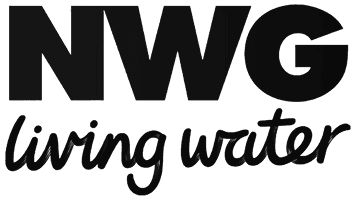Stop Water Loss and Start Building Resilience for a Sustainable Future
Climate change, population growth and aging infrastructure are putting unprecedented pressure on water utilities. The mission is clear: reduce leakage, cut operational costs and meet sustainability targets while ensuring reliable service for communities.
Our Customers


Stop Water Loss and Start Building Resilience for a Sustainable Future
Climate change, population growth and aging infrastructure are putting unprecedented pressure on water utilities. The mission is clear: reduce leakage, cut operational costs and meet sustainability targets while ensuring reliable service for communities.
Our Customers


Stop Water Loss and Start Building Resilience for a Sustainable Future
Climate change, population growth and aging infrastructure are putting unprecedented pressure on water utilities. The mission is clear: reduce leakage, cut operational costs and meet sustainability targets while ensuring reliable service for communities.
Our Customers


Powering the Water Sector
Solving Critical Challenges in Water Operations
Water utilities face evolving obstacles - network inefficiencies, regulatory compliance and customer service expectations. Here’s how CKDelta helps you overcome them.
Demand & Supply Forecasting
AI-powered models predict consumption needs, helping you balance resources and avoid shortages.
Leakage Detection & Reduction
Analytics pinpoint leaks and inefficiencies, enabling proactive maintenance and reducing water loss.
Vulnerable Customer Identification
Identify at-risk customers with tailored engagement strategies, ensuring compliance and equity.
Rising Workloads Require Faster Decisions
AI agents act as an extension of your team, orchestrating processes and executing decisions.
Powering the Water Sector
Solving Critical Challenges in Water Operations
Water utilities face evolving obstacles - network inefficiencies, regulatory compliance and customer service expectations. Here’s how CKDelta helps you overcome them.
Demand & Supply Forecasting
AI-powered models predict consumption needs, helping you balance resources and avoid shortages.
Leakage Detection & Reduction
Analytics pinpoint leaks and inefficiencies, enabling proactive maintenance and reducing water loss.
Vulnerable Customer Identification
Identify at-risk customers with tailored engagement strategies, ensuring compliance and equity.
Rising Workloads Require Faster Decisions
AI agents act as an extension of your team, orchestrating processes and executing decisions.
Powering the Water Sector
Solving Critical Challenges in Water Operations
Water utilities face evolving obstacles - network inefficiencies, regulatory compliance and customer service expectations. Here’s how CKDelta helps you overcome them.
Demand & Supply Forecasting
AI-powered models predict consumption needs, helping you balance resources and avoid shortages.
Leakage Detection & Reduction
Analytics pinpoint leaks and inefficiencies, enabling proactive maintenance and reducing water loss.
Vulnerable Customer Identification
Identify at-risk customers with tailored engagement strategies, ensuring compliance and equity.
Rising Workloads Require Faster Decisions
AI agents act as an extension of your team, orchestrating processes and executing decisions.







Northumbrian Water
Empowering Field Teams with AI-Powered Operational Support
Northumbrian Water chose CKDelta to deploy an AI-powered Field Service Agent that transforms on-site operations. The Agent provides instant SOP access, site-specific compliance data and integrated asset insights, while enabling voice-driven data collection - streamlining workflows, improving accuracy and boosting efficiency.

Northumbrian Water
Empowering Field Teams with AI-Powered Operational Support
Northumbrian Water chose CKDelta to deploy an AI-powered Field Service Agent that transforms on-site operations. The Agent provides instant SOP access, site-specific compliance data and integrated asset insights, while enabling voice-driven data collection - streamlining workflows, improving accuracy and boosting efficiency.

Northumbrian Water
Empowering Field Teams with AI-Powered Operational Support
Northumbrian Water chose CKDelta to deploy an AI-powered Field Service Agent that transforms on-site operations. The Agent provides instant SOP access, site-specific compliance data and integrated asset insights, while enabling voice-driven data collection - streamlining workflows, improving accuracy and boosting efficiency.
Related Solutions
Discover how CKDelta can help your industry
Workforce
Transform Every Operation with the Complete AI △Workforce for Utilities
Learn more
Demand
Predict consumption patterns across assets, enabling proactive planning and optimised resource allocation.
Learn more
Prevent
Assess asset health and plan maintenance, helping to prevent failures and optimise performance.
Learn more
Related Solutions
Discover how CKDelta can help your industry
Workforce
Transform Every Operation with the Complete AI △Workforce for Utilities
Learn more
Demand
Predict consumption patterns across assets, enabling proactive planning and optimised resource allocation.
Learn more
Prevent
Assess asset health and plan maintenance, helping to prevent failures and optimise performance.
Learn more
Related Solutions
Discover how CKDelta can help your industry
Workforce
Transform Every Operation with the Complete AI △Workforce for Utilities
Learn more
Demand
Predict consumption patterns across assets, enabling proactive planning and optimised resource allocation.
Learn more
Prevent
Assess asset health and plan maintenance, helping to prevent failures and optimise performance.
Learn more
